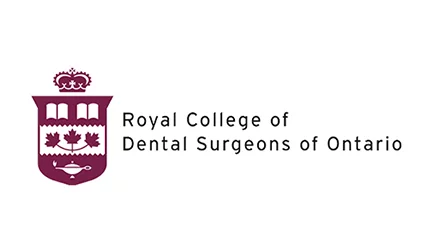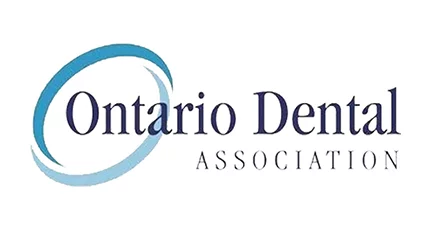EVERYTHING YOU NEED TO KNOW ABOUT DENTURES IN 2022?
Dentures are removable prosthetic devices that replace lost or missing teeth and effectively restore your smile. Dentures can be partial or full, which means they can replace all of your missing teeth on either side of your jaws or supplant only a few lost teeth.
The dentist recommends dentures to patients who have lost most of their teeth due to injury or periodontal diseases.
Various symptoms show that the patients might need dentures like:
- Tender or swollen, inflamed, or bleeding gums.
- Periodontal disease.
- Missing or removed teeth.
- Chewing problems.
- Persistent and chronic toothaches.
These are some common reasons why dentists suggest their patients should get dentures. Dentures are made of porcelain or plastic material, and some advanced-quality dentures are also made of a hard material called resin.
BENEFITS OF DENTURES
Dentures have various advantages, that’s why they are widely chosen, including:
- Dentures give you a natural smile by restoring broken, lost, or removed teeth.
- They are non-invasive and require less time in the treatment process.
- They are the most comfortable and convenient form of artificial teeth because of being removable.
- Dentures give you a natural-looking smile and efficaciously restore your chewing abilities.
Moreover, dentures also prove to be long-lasting if taken good care of. After getting dentures, you should maintain good oral hygiene and see your dentist at least once a year. When you remove your dentures, don’t let them get dry and place them in plain water or in a cleanser-soaking solution.
TYPES OF DENTURES
Dentures are mostly preferred due to their wide range of versatility. People can opt for several kinds of dentures according to their oral needs and preferences. Some most common types of dentures are as follows:
1. PARTIAL DENTURES
Partial dentures are a type of removable dentures that can supplant multiple missing or removed teeth but not an entire lower or upper set of teeth. Partial dentures are not just limited to being a cosmetic restoration procedure; they can effectually improve the chewing and speaking abilities of the wearer.
If taken good care of, partial dentures can last up to 5 years. These dentures usually comprise a plastic or resin material that provides a natural-looking smile to the patients. Partial dentures are further divided into two types, i.e., upper partial dentures and lower partial dentures.
The upper partial dentures replace the lost or missing teeth in the upper jaw of patients. Dentists usually recommend upper partial dentures when the patient has more than three missing teeth in their upper jaw.
2. COSMETIC DENTURES
Cosmetic dentures are specifically designed to give you the most genuine-looking smile. Unlike conventional dentures, cosmetic dentures can also support your jaw by optimising the neuromuscular function of the jawbone.
Cosmetic dentures are best fitted in your mouth and blend with your original teeth. They help the wearer to regain the muscle tone around their neck and face and prevent face wrinkling and sagging.
3. COMPLETE DENTURES
Dentists suggest complete dentures to patients when they have several missing teeth. The complete or full dentures occupy the whole mouth rather than a specific portion. They comprise an acrylic material. The complete dentures enhance the wearer’s appearance and improve their chewing and speaking abilities.
4. DENTURE IMPLANTS
Denture implants are permanent dentures that are supported and secured by implants. The implant-supported dentures are more aesthetically pleasing, have improved fitting, and are much more comfortable as compared to conventional dentures.
They are generally non-removable, can only be removed by your dentist, and are termed fixed dentures. The denture implants provide the wearer with enhanced teeth functionality and feel like natural teeth.
WHAT ARE THE COSTS OF A PERMANENT DENTURE IN CANADA?
The permanent denture costs in Canada vary based on several factors, including the number of teeth required to be replaced, the quality of denture implants, and the experience of your dentist.
However, the estimated costs of permanent dentures in Canada can be between $1300 to $3000 for a partial set and $5000 to $7000 for a complete set.
In Canada, the costs of dentures are usually not covered by dental insurance, and patients have to fully finance their treatment.
PREVENTIVE CARE AFTER GETTING DENTURES
To maintain the quality of dentures, people should follow some preventive measures advised by their dentist, including:
- Avoiding sticky or hard food items.
- Maintaining good oral hygiene by brushing your teeth daily.
- Soaking dentures overnight.
- Rinsing and cleaning your dentures.
WHAT ARE DENTURE CLEANERS?
Denture cleaners or cleansers are used to clean the dentures after they are removed to control the growth of microorganisms or bacteria. The denture cleaners come in the form of a tablet that dissolves in a water solution.
They are also available in the form of pastes or powders. These cleaners kill bacteria and maintain the pliable quality of dentures. Common ingredients of denture cleaners are citric acids, sodium bicarbonate, sodium perborate, and tetra acetyl ethylene diamine.
WHAT IS DENTURE GLUE?
Denture glue or adhesives are powders, pastes, or adhesive pads placed on dentures to help them remain in place. The denture adhesives are only required by removable dentures and often contain zinc in their composition to prevent unwanted shifting of dentures.
Once applied, the denture adhesives can last up to four days on dentures and provide a cushion grip.
Sometimes, denture adhesives prove to be really sticky, and people prefer acrylic resins in their place. Acrylic resins are quite expensive compared to denture glue, but they are more durable and long-lasting.
DO DENTURES FEEL JUST LIKE YOUR ORIGINAL TEETH?
In the beginning, people might feel slight discomfort or soreness after getting dentures, but after some time, these side effects settle down on their own, and people get comfortable with dentures, whether they are removable or permanent.
WHAT KIND OF FOOD CAN YOU EAT AFTER GETTING DENTURES?
After getting dentures, you can almost eat anything you want except some extremely hard or sticky food. Moreover, you should maintain good oral hygiene to preserve the quality of your dentures so they can last longer.
You should also give up teeth-grinding or nail-biting habits after getting dentures to maintain the functionality of dentures.











